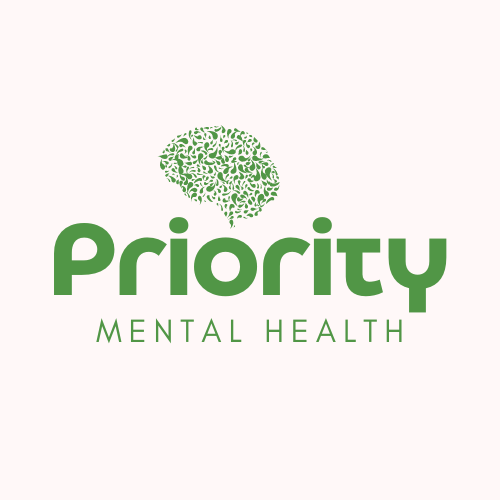

Today we’d like to introduce you to Ellen Honsa.
Hi Ellen, so excited to have you on the platform. So before we get into questions about your work-life, maybe you can bring our readers up to speed on your story and how you got to where you are today?
My journey into clinical psychology began with a deep fascination with how experiences shape our lives. Early on in my life, I sought out experiences to better understand how trauma, or negative experiences, impact daily functioning and relationships across the lifespan.
What truly solidified my path was witnessing how effective therapeutic interventions could help people break free from these patterns. At the beginning of my career, I specialized in working with children, teens, and young adults because I saw how addressing challenges earlier could prevent decades of struggle. As my practice evolved, I naturally expanded to working with adults, parents, and the entire family system, recognizing that healing often requires a more holistic approach.
A cornerstone of my practice is comprehensive psychological testing. My focus on this area stems directly from my understanding of how negative experiences and trauma physically impact the brain and nervous system. Through advanced psychological assessments, I can track these neurological differences and provide evidence-based recommendations tailored to each individual’s unique brain functioning.
This testing component has evolved into a significant portion of my clinical work, particularly in identifying and supporting neurodivergence across the spectrum. Minnesota has faced a critical shortage of comprehensive testing services, with many families waiting 8-12 months for evaluations, that are essential for accessing appropriate educational supports, treatment plans, and accommodations.
My passion lies in integrating neurobiological understanding with practical, actionable recommendations. I don’t just provide a diagnosis—I create a roadmap for families, schools, and other providers to support each individual’s unique profile. I’ve also developed expertise in evidence-based therapeutic approaches, particularly EMDR (Eye Movement Desensitization and Reprocessing). This combination of precise assessment and targeted treatment allows me to address both the neurological foundations and the lived experiences of my clients.
What keeps me passionate about this work is seeing the resilience in my clients – from the six-year-old finally receiving appropriate classroom accommodations after testing, to the teenager understanding their strengths for the first time, to the parent breaking intergenerational patterns by accessing proper support. Each success story reinforces my commitment to this field and to the community I’m privileged to be a part of.
Alright, so let’s dig a little deeper into the story – has it been an easy path overall and if not, what were the challenges you’ve had to overcome?
Like many paths in healthcare, mine hasn’t always been smooth. Several significant challenges have shaped both my practice and perspective over the years.
First, there’s the deeply personal aspect of this work. While training to become a therapist and throughout my career, I’ve had to process my own mental health experiences and past difficulties. Holding space for others’ while working through your own “stuff” requires tremendous self-awareness and boundaries. There have been periods of burnout where I’ve had to recommit to my self-care practices—not just as professional maintenance but as essential modeling for my clients. This field definitely demands that we practice what we preach about mental wellness.
The systemic challenges in mental healthcare have been equally significant. In general, we face persistent issues with long waitlists and limited resources. Insurance reimbursement rates for mental health services remain disappointingly low, which creates barriers to sustainability for many practices and limits access for clients. The disconnect between the recognized importance of mental health and the financial support for these services remains frustrating.
Despite progress, mental health stigma continues to be a major obstacle. I still encounter people who whisper about therapy appointments or clients who wait years longer than necessary to seek help because of concerns about what others might think. This stigma is particularly pronounced in certain communities and demographics across our state, creating additional barriers where support is most needed.
Finally, working with children and teens presents its own complex dynamics. One recurring challenge is when parents bring their child for therapy expecting me to “fix” them without family involvement. Meaningful change typically requires some level of adjustment from the adults in their lives as well. Navigating these family dynamics requires diplomacy and patience, especially when parents might be resistant to examining their own contributions to the situation.
Although these challenges are difficult, they have ultimately made me a more effective and empathetic provider. They’ve informed my approach to assessment and treatment, and deepened my commitment to advocacy within the mental health field.
As you know, we’re big fans of Priority Mental Health. For our readers who might not be as familiar what can you tell them about the brand?
At Priority Mental Health, the foundational belief is simple but powerful: mental health is not a luxury—it’s a fundamental aspect of living a fulfilling life. I’ve built the practice around making expert care accessible without compromising on quality or the personalized attention our clients deserve. This clinic is where expertise meets compassion, creating mental health care that truly prioritizes the individual.
What sets us apart is our commitment to removing traditional barriers to mental health services while maintaining the highest clinical standards. We offer flexible scheduling options, including evening and weekend appointments, and utilize a sliding scale fee structure to accommodate various financial situations. This approach has allowed us to serve populations that might otherwise go without crucial support.
I’ve developed particular expertise in EMDR (Eye Movement Desensitization and Reprocessing) therapy, which has proven remarkably effective for clients processing trauma, distructive patterns, and negative self-beliefs. The comprehensive psychological testing services have also become a cornerstone of our reputation in Minnesota. The detailed assessments we provide for ADHD, autism spectrum, learning disabilities, and other psychological concerns have become known for their thoroughness and actionable recommendations.
What I’m most proud of brand-wise is how I’ve created an environment where clinical excellence and genuine human connection coexist.
I am working to open a physical office space (coming summer 2025 wahoo!) and I am intentionally designing that space to be welcoming rather than clinical. My long-term goal is to create a collaborative community space not only for therapy and testing, but also a space for curated community events, group discussion, and learning opportunities.
I want readers to know that Priority Mental Health was built on the recognition that everyone deserves specialized care tailored to their unique circumstances. I am confident in provided evidence-based care that acknowledges the whole person. Mental health challenges don’t exist in isolation, and neither should their treatment.
At the end of the day, I know that my work is not just helping individuals—I am contributing to a community where mental health is genuinely prioritized, stigma is actively challenged, and everyone has the opportunity to thrive.
Is there a quality that you most attribute to your success?
What’s been most essential to my success as a clinical psychologist is the ability to balance psychology’s dual nature as both a science and an art.
The scientific foundation is crucial—I’m committed to evidence-based approaches and stay current with research on relevant topics and therapeutic techniques. This commitment ensures my clients receive interventions that have demonstrated effectiveness. However, equally important is recognizing that psychology is also an art form. Every client who walks through my door brings a unique constellation of experiences, neurological patterns, relational dynamics, and personal strengths. I’ve found that my ability to see each person as genuinely distinct—rather than merely fitting them into diagnostic categories or treatment protocols—has been most beneficial for my practice. This artistry involves suspending preconceived notions and resisting the temptation to pattern-match clients to others I’ve worked with previously. While diagnostic frameworks are useful tools, they’re just the beginning. The real work happens when I can sit with someone, truly see them in their complexity, and meet them exactly where they are.
Some of the most profound growth I’ve witnessed occurs when clients feel authentically seen, perhaps for the first time. This happens not through only applying a standardized approach but through finely tuned adjustments to what that specific person needs in that specific moment. What each client needs changes from person to person, and even session to session…it’s something uniquely calibrated to their circumstances at that point in time.
I’ve come to view this balance—honoring the science while embracing the art—as not just important to success but essential to success. It allows me to hold both the rigor of evidence-based practice and the creative flexibility required to honor each client’s humanity.
Pricing:
- Therapy Sessions (ranges from $125-$220)
- Psychological Testing (ranges from $1000-$3000)
- 90 minute consultation (for recommendations and resources) $200
- 15 minute consultation (free)
Contact Info:
- Website: https://www.prioritymentalhealth.org/
- Instagram: https://www.instagram.com/drellenhonsa/
- LinkedIn: https://www.linkedin.com/in/ellen-honsa/












